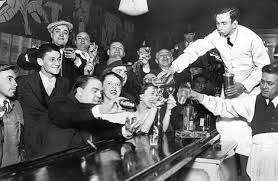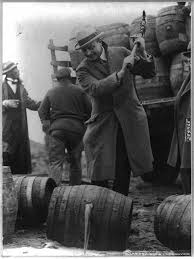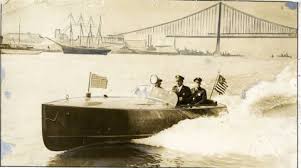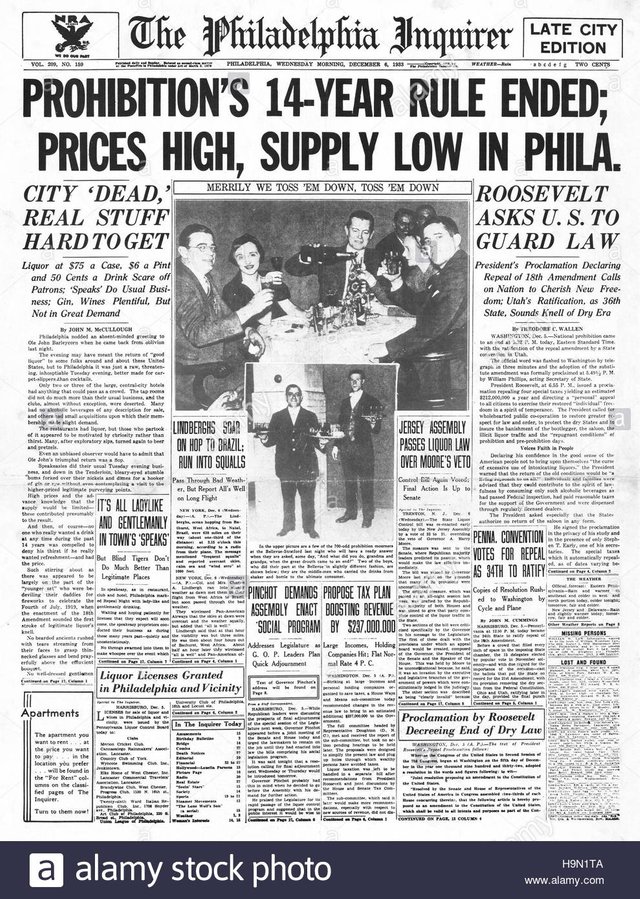
On January 8, 1918 Mississippi would become the first state to ratify the 18th Amendment, and establish Prohibition within its state borders. Federal Prohibition would not begin until January 16, 1920. Mississippi would set the precedents for other states to enact prohibition bans prior to the federal prohibition. On March 18, 1918, Delaware would be one of these states to follow in Mississippi’s footsteps. Pennsylvania would not ban alcohol until February 25, 1919, while New Jersey waited till March 9, 1922. During the early 1900’s, the concept of nativism rose with the increase in immigration to the United States. Many of these immigrants came from backgrounds where alcohol was common in their cultures. The Irish and German’s were two of these prominent immigrant groups. In addition to anti-immigration, many groups of Women’s Suffrage began to appear. These groups came together to push for a world of “clean” living, which they believed would primate moral character. Little did these groups know their actions would have a reverse influence on the mass population.

During Prohibition, Philadelphia would become a center of a bootlegging. Philadelphia was reported to rival New York City, Chicago, and Detroit in the amount of illegal alcohol flowing within its city’s borders. Philadelphia and Atlantic City became major ports of entry for alcohol along the East Coast. It became common knowledge that Philadelphia was known as an “open town,” where defiance of the liquor laws was common practice.

Ironically, after prohibition was passed, Philadelphia had more bars and saloons. However now they were all underground. Before prohibition, Philadelphia had been known to be the nation’s leading city of brewing beer. In fact, during the late 1880’s, the city had about 100 Breweries operating within the city’s limits. Some of these breweries began to create nonalcoholic beer, while other continued to produce regular beer. The common knowledge of the continued production of many of these breweries would lead to numerous police raids. Some of these raided breweries were Liebert and Obert, Roehm Brewing Company, Esslinger and Son, Finkenauer Brewing Company, and the Philadelphia Brewing Company. Unfortunately, when prohibition ended in 1933, only ten licensed breweries would remain in Philadelphia.

In addition to the increase of underground drinking establishments, crime began to increase substantially due to the void left by prohibition. In 1928, over 20 deaths were directly attributed to gangs fighting over the control of territories of alcohol distribution in Philadelphia. Judge Edwin Lewis called for a Special Grand Jury after this. Washington would sent numerous task forces, including teams from the Internal Revenue Service (IRS). Investigations led by federal agents led to numerous raids on speakeasies, and disruptions in the bootlegging network. The investigations also led to the arrests of twenty-four high ranking Philadelphia Police Officers.

The police officers charges ranged from bribery, to helping to protect boot legging operations. Even with the large crack downs by federal agents, the market for alcohol flourished. Alcohol was enjoyed by all social classes. On February 20, 1933 the 21st Amendment was passed in congress, and prohibition was repealed. The current liquor laws of Pennsylvania, still have many aspects of post prohibition politics. Days before the 21st amendment passed in congress, Pennsylvania Governor Gifford Pinchot created the Pennsylvania Liquor Control Board. This board would allow the state to keep some control over the distribution and sales of alcohol in Pennsylvania. Utah and Pennsylvania are the only states to still regulate alcohol with state-run stores. In recent years, the idea of state-run liquor stores has been questioned numerous times in Philadelphia. Today, Philadelphia is home to hundreds of bars, saloons, and clubs which thrive in a every changing city.

100% of the SBD rewards from this #explore1918 post will support the Philadelphia History Initiative @phillyhistory. This crypto-experiment is part of a graduate course at Temple University's Center for Public History and is exploring history and empowering education to endow meaning. To learn more click here.
Sources:
http://philadelphiaencyclopedia.org/archive/prohibition/
https://constitutioncenter.org/interactive-constitution/amendments/amendment-xxi
http://www.philly.com/philly/food/20121018_Joe_Sixpack__How_Prohibition_played_out_in_Philadelphia.html
https://philly.curbed.com/2012/12/6/10298418/the-real-faces-of-prohibitionera-philadelphians
I know that Prohibition effectively killed the rye whiskey manufacturing industry in Maryland; I wonder if it had an impact like that on any Pennsylvania industries?
Downvoting a post can decrease pending rewards and make it less visible. Common reasons:
Submit
I know a lot of breweries (including Sprecher's) pivoted to making things such as soda, but I don't have any good Pennsylvania examples off of the top of my head.
Downvoting a post can decrease pending rewards and make it less visible. Common reasons:
Submit